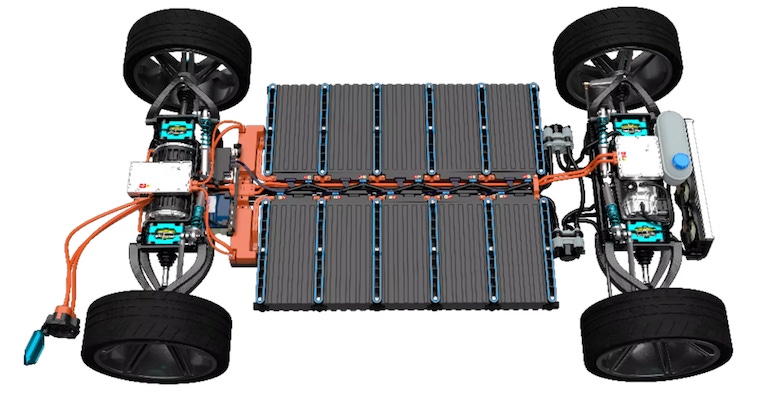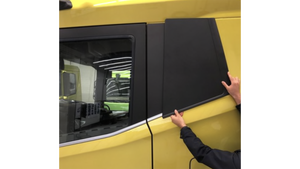Multilayer construction of EV cooling lines expands design freedom while lowering global warming potential.
August 1, 2022

DuPont Mobility & Materials today introduced eCool technology for extrusion of multilayer cooling lines positioned inside and outside high-voltage battery packs. This innovation addresses the challenge posed by increased cooling line requirements in various electric vehicle (EV) types, a direct result of the vital need to manage heat and energy for maximum battery operation, safety, and range.
“Automotive cooling lines are critical to maintaining the performance of EV batteries. And as a large application, they are an important target for sustainability improvement. With our eCool solution, we offer the industry a high-performance, flexible, and more sustainable solution that is also cost competitive,” said Laurent Lefebvre, Global Marketing Director, Automotive, DuPont Mobility & Materials.
Electric vehicles can require up to three times the length of cooling lines found in internal combustion engine (ICE) systems. For these large components, engineers are challenged with finding a more sustainable solution that will still hold up to cooling fluids. DuPont’s eCool technology, based on the company’s Zytel LCPA long-chain polyamide grades co-extruded with thermoplastic olefin elastomer, presents an attractive alternative to current, heavier options such as thick EPDM rubber hoses and other thermoplastic assemblies. ECool technology not only removes weight but also better resists a range of EV cooling fluids while remaining cost competitive. In addition, DuPont has assessed that its eCool solution can significantly reduce global warming potential (GWP) by more than half compared with monolayer PA12 tubes.
The new eCool technology can be easily processed via extrusion and thermoforming and offers:
Lightweighting: Weight reduction versus thicker EPDM rubber hose reinforced with textiles.
Sustainability: Lower GWP than some alternative flexible polyamide thermoplastics.
Coolant/hydrolysis resistance: Barrier and stress resistance to coolant chemistries.
Customization: Ability to test and customize solutions at DuPont Automotive Electrification Centers of Excellence.
Cost: Cost-effective solution for EV cooling lines.
Design freedom: Positioning of thermoplastic olefin elastomer layer can be customized to improve the flexibility of tubes and pipes.
Production-level support for eCool technology is available at DuPont’s Center of Excellence in Geneva, as well as at other application development centers globally. This includes advanced CAE/FEA simulation, extrusion trials, support for post-processing, welding and testing for burst pressure, mechanical evaluation of properties before and after air and chemical aging, salt stress cracking, cold impact resistance, and bend testing. With its industrial-scale processing equipment, DuPont offers customers the ability to manufacture cooling lines under near-commercial conditions, then do the testing to dial in the process and postprocessing required.
DuPont Mobility & Materials will showcase these and other cutting-edge solutions and technology innovations at K 2022 in Düsseldorf, Germany, from Oct. 19 to 26. The company is exhibiting in booth C43 in hall 6.
You May Also Like


